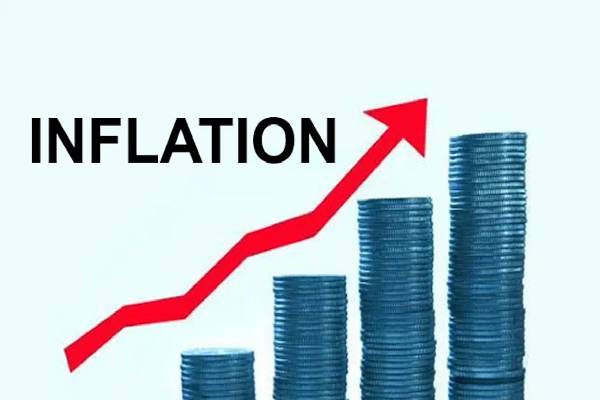As the economic pendulum swings, Nigeria finds itself entangled in the nuanced struggle against inflation and the volatility of the exchange rate – a challenge that transcends mere statistics. This narrative goes beyond economic indicators; it weaves a tapestry of hardships that extend into the daily lives of citizens, creating a palpable sense of economic crossroads.
The escalating inflation rates have become a relentless force, gnawing at the purchasing power of everyday Nigerians. As prices of commodities soar, basic necessities transform into elusive luxuries for many. The bustling markets, once vibrant with trade, now echo the strains of families grappling with the rising cost of living.
GDP growth, often considered a barometer of economic health, stumbles under the weight of these challenges. The wheels of industry, once turning with vigour, now face friction, affecting businesses large and small. Entrepreneurs find themselves navigating a landscape of uncertainty, and the ripples of economic instability reach even the smallest enterprises, impacting employment and livelihoods.
In the midst of economic turmoil, the labour market bears the brunt of rising unemployment. As companies tighten their belts in response to economic uncertainty, individuals and families grapple with the anxiety of job losses. The once-steady flow of income falters, and the security that employment provides becomes increasingly fragile.
Insecurity: FG installs E-verification gate at Abuja airport
Mambilla: Tinubu advised to end 14-year FG/Sunrise case
Yet, in these economic hardships, there is a profound human story. Families stretch their budgets, making difficult choices about essentials versus luxuries.
Amidst this backdrop, it becomes imperative to recognise the pivotal role that the Central Bank of Nigeria must play in steering the nation through these challenging economic times. To effectively navigate these challenges in the economic landscape, the Central Bank of Nigeria must embrace a comprehensive strategy. A crucial first step involves the strategic tightening of monetary policy. Through judicious adjustments to interest rates, the bank can effectively mitigate inflationary pressures, thereby stabilising overall price levels and alleviating the financial burden on citizens grappling with the escalating cost of living.
Drawing inspiration from global practices, the Reserve Bank of India (RBI) provides a notable example. When confronted with inflationary concerns, the RBI has adeptly employed repo rate adjustments, making borrowing more expensive for commercial banks and subsequently raising interest rates across the broader economy to dampen inflationary pressures.
Similarly, the Federal Reserve in the United States has historically utilised interest rate hikes as a pivotal tool for tightening monetary policy. During periods of economic expansion or to address inflation concerns, the Fed has implemented increases in the federal funds rate. This strategic move raises the cost of borrowing, thereby discouraging excessive spending and investments, ultimately curbing inflationary pressures.
The European Central Bank (ECB) has taken a nuanced approach to tightening by gradually tapering its asset purchase programme as economic conditions improved. This deliberate reduction in the volume of purchased assets is aimed at constraining the expansion of the money supply, preventing excessive inflation while fostering overall economic stability.
Post the 2008 financial crisis, the Bank of England implemented quantitative tightening measures, a distinctive strategy following periods of monetary easing. This involved systematically reducing the size of its balance sheet by divesting assets acquired during quantitative easing phases. By doing so, excess money in the financial system is absorbed, contributing to a more stringent monetary stance.
Strategic interventions in the foreign exchange market play a critical role and are equally pivotal for the Central Bank’s mandate to manage and stabilize the national currency. The effectiveness of these interventions hinges on astute decision-making and a proactive approach. One noteworthy strategy is the judicious utilization of foreign exchange reserves through targeted market interventions, a practice demonstrated by various central banks globally.
For instance, the Swiss National Bank (SNB) provides a compelling example. Faced with challenges such as currency appreciation, the SNB strategically intervened in the foreign exchange market by purchasing foreign currencies to prevent the Swiss Franc from becoming excessively strong. This intervention not only stabilized the exchange rate but also supported the competitiveness of Swiss exports.
Similarly, the Bank of Japan (BOJ) has implemented strategic interventions to address currency volatility. The BOJ actively buys or sells its currency in the foreign exchange market, aiming to influence the yen’s value. These interventions are designed to counteract disruptive fluctuations and maintain stability, thereby safeguarding the competitiveness of Japanese exports.
In the context of the Eurozone, the European Central Bank (ECB) has undertaken strategic interventions to address challenges associated with the Euro’s exchange rate. By utilising foreign exchange reserves, the ECB has intervened to counteract speculative movements and stabilise the Euro, ensuring a conducive environment for economic activities within the Eurozone.
Aligned with the Central Bank’s initiatives, the government is tasked with playing a pivotal role in steering economic recovery through proactive measures. Paramount to this effort is the implementation of effective fiscal policies, requiring a disciplined approach to budgetary allocations, a reduction in unnecessary expenditures, and a strategic focus on enhancing revenue generation. By adopting such fiscal prudence, the government can significantly contribute to overall economic stability.
However, beyond fiscal responsibility, the fundamental imperative for sustainable economic recovery lies in diversifying the economy beyond reliance on oil. This strategic move serves as a shield against the volatility of global oil prices and lays the foundation for a more resilient economic base. To achieve this, the government should actively incentivise and support diverse sectors, including agriculture, technology, and manufacturing. By fostering growth in these areas, the nation not only mitigates the impact of fluctuating oil prices but also propels itself towards long-term economic sustainability.
Drawing inspiration from successful models worldwide, particularly those from economically diverse nations like Germany and Singapore, can offer valuable insights for Nigeria’s economic transformation. Germany’s disciplined fiscal approach and emphasis on technological innovation, coupled with Singapore’s strategic diversification beyond traditional sectors, exemplify the potential benefits of a multifaceted economic strategy.
Moreover, the government should consider strategic investments in infrastructure to create an enabling environment for diverse sectors to thrive. This includes improving transportation networks, fostering innovation hubs, and facilitating access to markets for agricultural products. Such investments not only stimulate economic activity but also lay the groundwork for sustained growth.
In tandem with economic diversification, social policies play a crucial role in ensuring an inclusive recovery. To address the immediate impact of escalating food prices, the government can adopt a comprehensive approach. Initial measures involve the implementation of temporary subsidies and price controls on essential food items, aimed at enhancing affordability for the general population. Simultaneously, targeted direct cash transfers to vulnerable households provide individuals with the flexibility to tailor their purchasing decisions according to their specific needs.
Another effective strategy is the introduction of food voucher programmes, enabling low-income families to redeem vouchers at designated grocery stores for essential items. The reinforcement and expansion of social safety nets, including conditional cash transfer programs, play a vital role in offering financial assistance to those most affected by the surge in food prices. Additionally, collaborative efforts with NGOs and local businesses in the implementation of emergency food assistance programs can ensure efficient distribution of food packages to vulnerable populations.
As we reflect on the current economic challenges confronting Nigeria, it becomes clear that this is not merely an economic crossroads but a profound societal reckoning with the tangible impact of inflation and exchange rate volatility. Beyond the confines of numbers and graphs, we find the profound human experience of resilience and fortitude in the face of economic uncertainty. Navigating this intricate terrain requires more than decoding the economic conundrum; it demands empathy for the stories of its people, acknowledging the daily struggles that unfold alongside the statistics and charts.
In this context, the government holds the key to alleviating the plight of its citizens and steering the nation toward economic recovery. The people are not just statistics; they are individuals grappling with the harsh realities of rising costs and economic instability. Their collective plea is a poignant cry for meaningful interventions and sustainable solutions. As policymakers assess the economic landscape, it is crucial to bear in mind that behind every data point is a story of hardship.
The government must actively listen to its people, understand their struggles, and respond with policies that not only address economic challenges but also bring tangible relief to those enduring the brunt of this complex economic juncture. The path forward necessitates a compassionate and effective response to the cries of its citizens, recognizing that their well-being is paramount for the nation’s enduring prosperity.
Mohammed wrote from Abuja

 Join Daily Trust WhatsApp Community For Quick Access To News and Happenings Around You.
Join Daily Trust WhatsApp Community For Quick Access To News and Happenings Around You.


